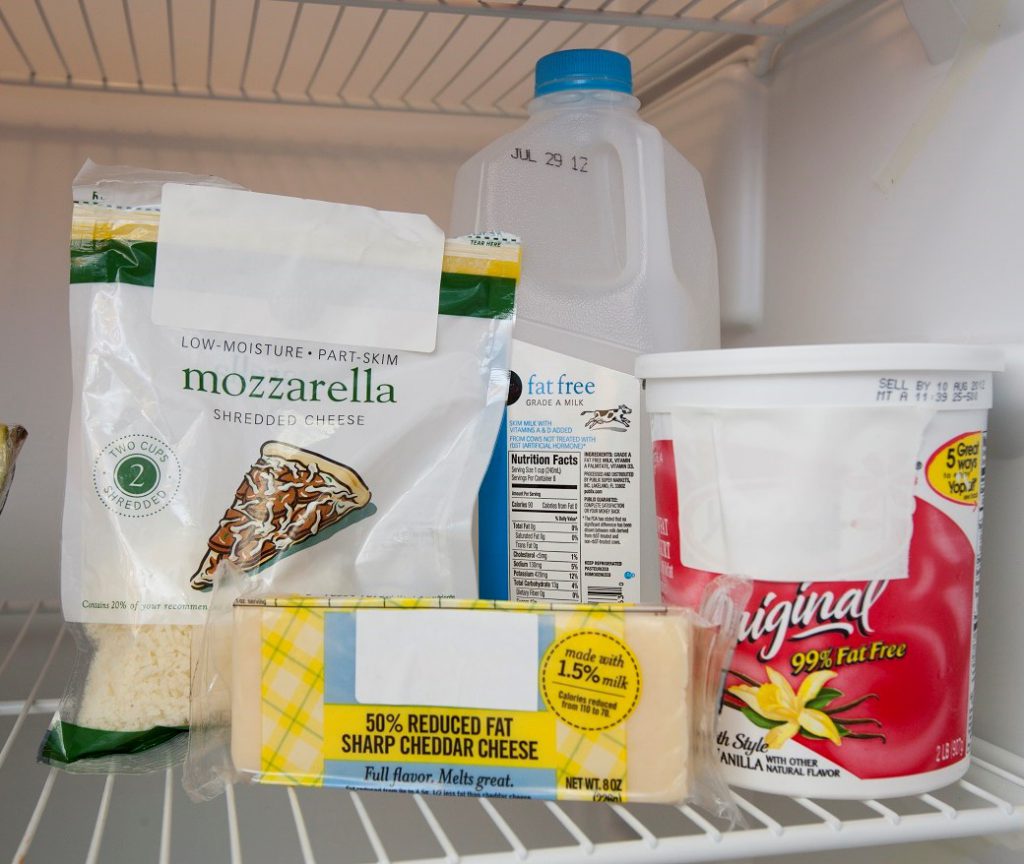As we age, our bodies undergo various changes, including a decrease in bone density, which puts us at a higher risk of developing osteoporosis. Osteoporosis is a condition that weakens the bones and makes them more susceptible to fractures. This condition is especially prevalent in older adults, and it can significantly affect their quality of life. However, there are some foods that can help reduce the risk of osteoporosis in older adults.
Dairy products
Dairy products are rich in calcium, which is essential for strong and healthy bones. Calcium is the primary mineral that makes up the bones, and getting enough of it in your diet can help prevent bone loss. Older adults are advised to consume at least three servings of dairy products per day, including milk, cheese, and yogurt. It is also important to choose low-fat or fat-free dairy products to reduce the risk of heart disease.

Leafy greens
Leafy greens are another great source of calcium, and they also contain other essential vitamins and minerals, such as vitamin K, which helps with bone metabolism. Some of the best leafy greens for bone health include kale, spinach, collard greens, and Bok choy. These greens can be incorporated into your diet in a variety of ways, such as adding them to salads or smoothies.
Fatty fish
Fatty fish, such as salmon, tuna, and mackerel, are excellent sources of vitamin D and omega-3 fatty acids, which can help reduce the risk of osteoporosis. Vitamin D helps the body absorb calcium, while omega-3 fatty acids can reduce inflammation and promote bone growth. Older adults are advised to consume at least two servings of fatty fish per week. If you are not a fan of fish, you can also get vitamin D from fortified foods, such as milk and cereal, or by spending some time in the sun. About 10 minutes of sun exposure a day can help boost vitamin D production in the body.
Nuts and seeds
Nuts and seeds are rich in several nutrients that are essential for bone health, including calcium, magnesium, and phosphorus. Some of the best nuts and seeds for bone health include almonds, sesame seeds, chia seeds, and pumpkin seeds. These can be added to salads, oatmeal, or eaten as a snack. These seeds are also rich in fiber, which is important for digestive health.
Fortified foods
In addition to natural sources of calcium and vitamin D, there are also many fortified foods that can help reduce the risk of osteoporosis. These include orange juice, cereal, and tofu, which are fortified with calcium and vitamin D. It is important to check the label of these products to ensure that they contain enough of these nutrients to make a difference.
In conclusion, osteoporosis is a significant health concern for older adults, but it can be prevented by consuming a diet rich in calcium, vitamin D, and other essential nutrients. Incorporating dairy products, leafy greens, fatty fish, nuts and seeds, and fortified foods into your diet can help reduce the risk of osteoporosis and promote healthy bones. However, it is important to note that diet alone is not enough to prevent osteoporosis, and older adults should also engage in regular exercise and avoid smoking and excessive alcohol consumption. By taking these steps, older adults can improve their bone health and maintain their independence and quality of life.
UF/IFAS is an Equal Opportunity Institution.
- Plugging Spending Leaks - October 24, 2025
- Pets are Good for Mental Health - September 26, 2025
- Develop a Family Emergency Plan for Hurricane Season - June 30, 2025
